Link Wray
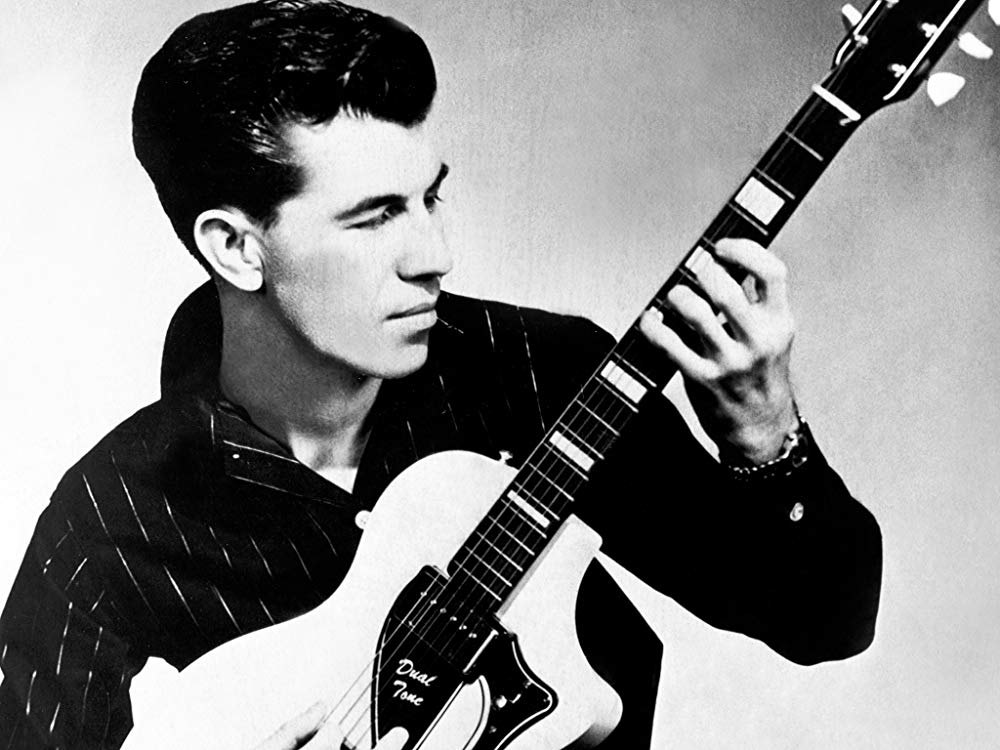
was a Native American rock and roll guitarist, songwriter, and vocalist who became popular in the late 1950s.
Building on the distorted electric guitar sound of early records, his 1958 instrumental hit “Rumble” by Link Wray & His Ray Men popularized “the power chord, the major modus operandi of modern rock guitarists,” facilitating the emergence of “punk and heavy rock”. Rolling Stone placed Wray at No. 45 of the 100 greatest guitarists of all time. In 2013 and 2017 he was a nominee for the Rock and Roll Hall of Fame. Though he began in country music, his musical style went on to consist primarily of rock and roll, rockabilly, and instrumental rock.
Jerry Reed
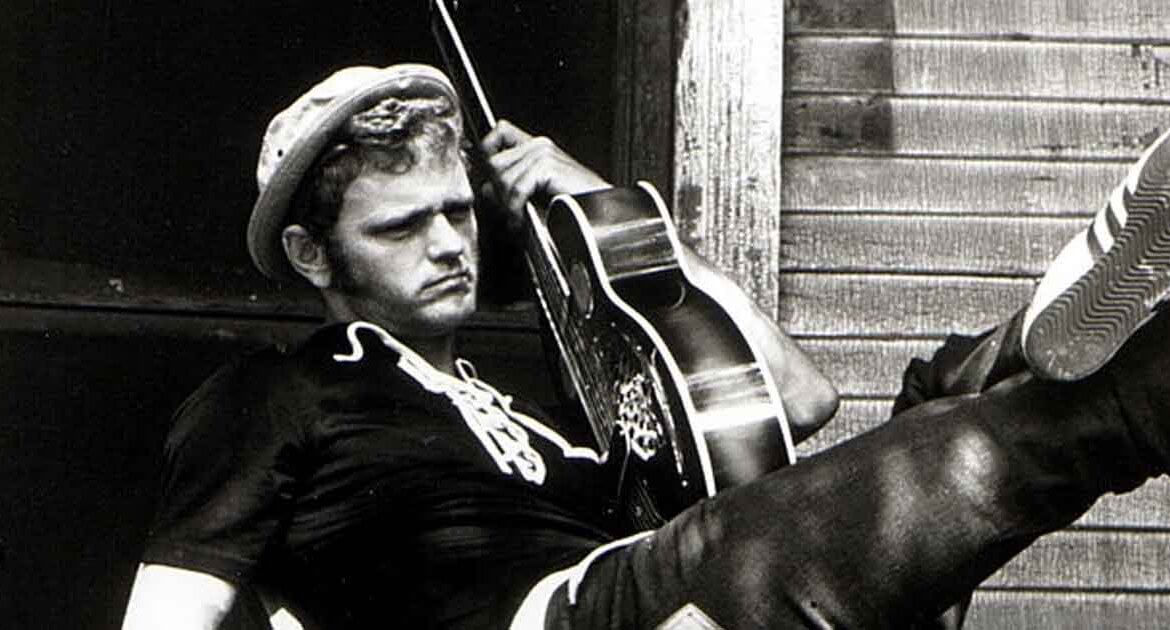
was an American country music singer, guitarist, and songwriter, as well as an actor who appeared in more than a dozen films. His signature songs included “Guitar Man”, “U.S. Male”, “A Thing Called Love”, “Alabama Wild Man”, “Amos Moses”, “When You’re Hot, You’re Hot” (which garnered a Grammy Award for Best Country Vocal Performance, Male), “Ko-Ko Joe”, “Lord, Mr. Ford”, “East Bound and Down” (the theme song for the 1977 blockbuster Smokey and the Bandit, in which Reed co-starred), “The Bird”, and “She Got the Goldmine (I Got the Shaft)”.
Reed was announced as an inductee into the Country Music Hall of Fame on April 5, 2017 and was officially inducted by Bobby Bare on October 24.
Danny and the Juniors
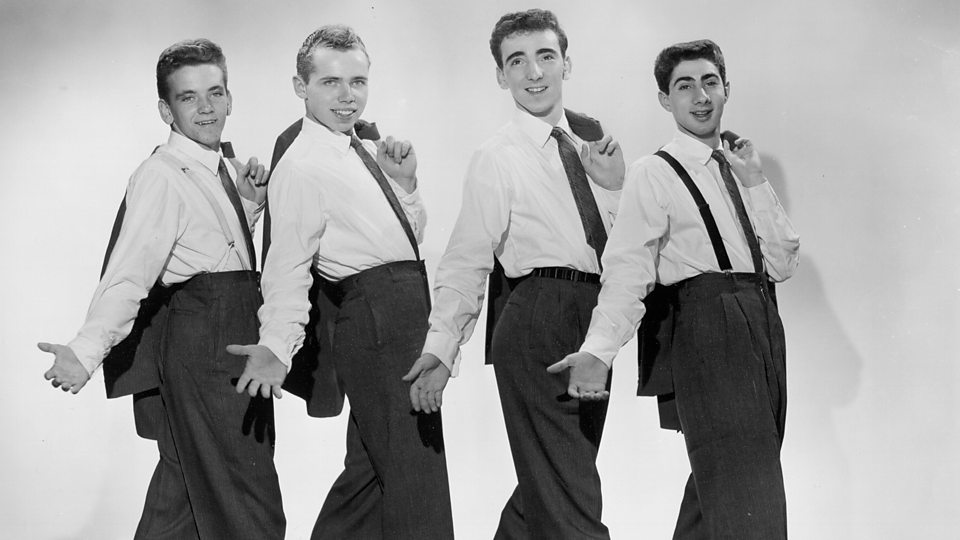
are a doo-wop and rock and roll vocal group from Philadelphia, Pennsylvania originally consisting of Danny Rapp, Dave White, Frank Maffei and Joe Terranova. Formed in 1955, they are most widely recognized for their 1958 hit single “At the Hop”, recorded the previous year in 1957.
The Del-Vikings
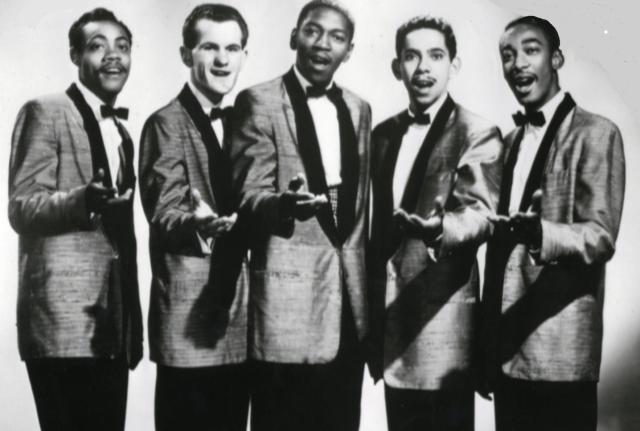
are an American doo-wop musical group, who recorded several hit singles in the 1950s, and continued to record and tour with various lineups in later decades. The group was notable for being one of the few racially mixed musical groups to attain success in the 1950s.
Eddie Cochran
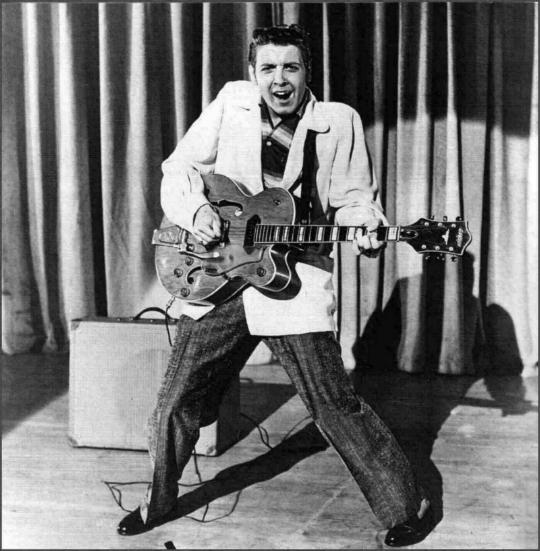
was an American musician. Cochran’s rockabilly songs, such as “Twenty Flight Rock”, “Summertime Blues”, “C’mon Everybody” and “Somethin’ Else”, captured teenage frustration and desire in the mid-1950s and early 1960s. He experimented with multitrack recording, distortion techniques, and overdubbing even on his earliest singles. He played the guitar, piano, bass, and drums. His image as a sharply dressed and good-looking young man with a rebellious attitude epitomized the stance of the 1950s rocker, and in death he achieved an iconic status.
Cochran was involved with music from an early age, playing in the school band and teaching himself to play blues guitar. In 1954, he formed a duet with the guitarist Hank Cochran (no relation), and when they split the following year, Eddie began a songwriting career with Jerry Capehart. His first success came when he performed the song “Twenty Flight Rock” in the film The Girl Can’t Help It, starring Jayne Mansfield. Soon afterwards, he signed a recording contract with Liberty Records.
Cochran died at age 21 after a road accident, while travelling in a taxi in Chippenham, Wiltshire, during his British tour in April 1960, having just performed at Bristol’s Hippodrome theatre. Though his best-known songs were released during his lifetime, more of his songs were released posthumously. In 1987, Cochran was inducted into the Rock and Roll Hall of Fame. His songs have been recorded by a wide variety of recording artists.
Ben E. King
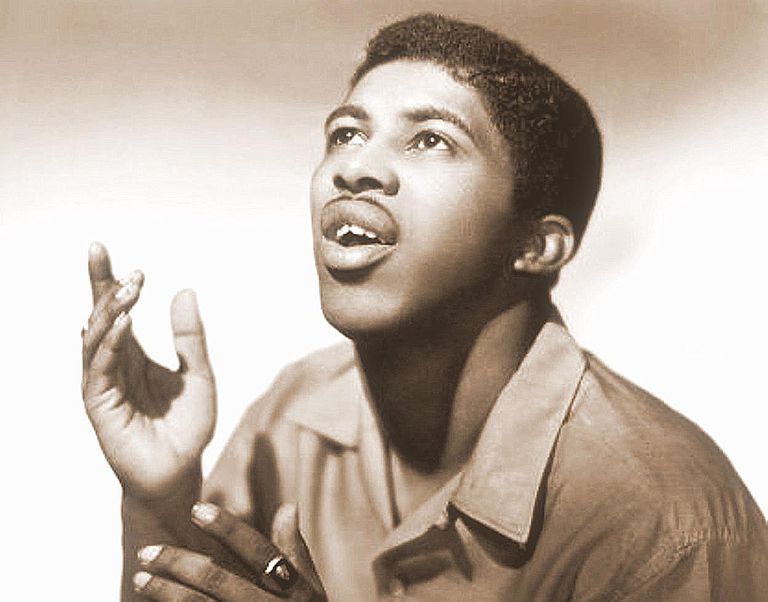
was an American soul and R&B singer and record producer. He was perhaps best known as the singer and co-composer of “Stand by Me”—a US Top 10 hit, both in 1961 and later in 1986 (when it was used as the theme to the film of the same name), a number one hit in the UK in 1987, and no. 25 on the RIAA’s list of Songs of the Century—and as one of the principal lead singers of the R&B vocal group the Drifters notably singing the lead vocals of one of their biggest global hit singles (and only U.S. #1 hit) “Save the Last Dance for Me”.
Johnny Burnette

was an American singer-songwriter of rockabilly and pop music. In 1952, he and his older brother, Dorsey Burnette, and their friend Paul Burlison formed the band that later was known as the Rock and Roll Trio.
The Five Satins
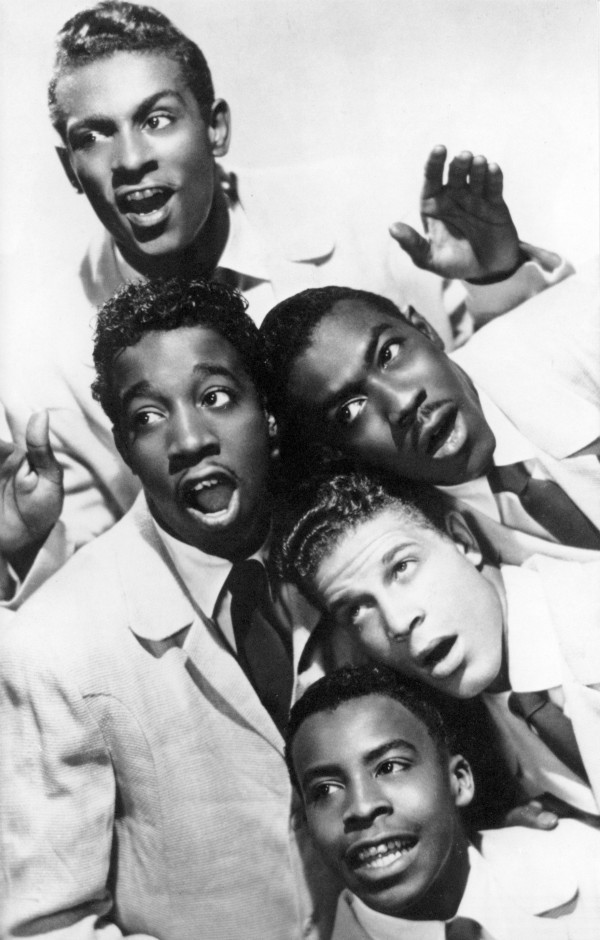
are an American doo-wop group, best known for their 1956 million-selling song, “In the Still of the Night.”
The group, formed in New Haven, Connecticut, consisted of leader Fred Parris, Lewis Peeples, Stanley Dortch, Ed Martin and Jim Freeman and Nat Mosley in 1954. With little success, the group reorganized, with Dortch and Peeples leaving, and new member Al Denby entering. The group then recorded “In the Still of the Night”, a very big hit in the United States which was originally released as the B-side to the single, “The Jones Girl”. The single was initially issued on the tiny local “Standord” label (45 stock # 200) and after some local Connecticut sales, it was released the following year on the New York label Ember (45 stock # 1005), and “In The Still Of The Night” ended up charting at number three on the R&B chart and number 25 on the pop charts. Two singles later, the follow-up track “Pretty Baby (That’s Why I Sing)” (Ember 1025) got weeks of airplay on powerful CHUM in Toronto, in November 1957. An August 1958 release, “A Night To Remember” (Ember 1038), got some Boston airplay. During late 1959 (in San Francisco, CA) and early 1960 (in both San Antonio, TX and Rochester, NY), their classic 45 side garnered renewed current airplay, becoming a Top 10 hit in all three listed markets. “In The Still of the Night” became an even bigger hit when it appeared as the lead track on Original Sound Records’ OLDIES BUT GOODIES Vol.1. The series eventually ran to 15 volumes. The series has been in continual print in one form or another since that first volume was released in 1959. In total, their signature track sold over one million copies and was awarded a gold disc. A case of painfully bad timing affected the group’s lead singer. Uncle Sam had come calling, and Parris entered the Army very soon after the huge success of “In The Still Of The Night”, forcing the group to reorganize again, with Martin, Freeman, Tommy Killebrew, Jessie Murphy and new lead Bill Baker. Baker quickly proved to be a highly capable replacement, however, as this lineup immediately hit big with another timeless, very successful effort, Billy Dawn Smith’s “To the Aisle” (Ember 1019), in September 1957.
Upon Parris’ return from the Army, a new lineup was assembled, consisting of Parris, Lewis Peeples (who was in a previous incarnation of the Five Satins), Sylvester Hopkins, Richie Freeman and Wes Forbes. The group would be briefly known as “Fred Parris and the Scarlets”, until the Baker-led group split up. At this point, they reverted to the Five Satins name. According to old radio survey repository ARSA, the following 45 sides charted in some markets: “I’ll Be Seeing You” (Ember 1061), 3/60; “Your Memory” (Cub 9071), 7/1960; “The Time” (Ember 1066), 10/60; “These Foolish Things/A Beggar With A Dream” (Cub 9077), 12/60; “Till The End” (United Artists 368), 11/61; “The Masquerade Is Over” (Chancellor 1110), 7/62; “Remember Me” (Warner Brothers 5367), 8/63; and “Ain’t Gonna Dance” (aka “Ain’t Gonna Cry”, Roulette 4563), 7/64. In total, the group appeared on an unusually high number of record labels, even for their era, when such label-hopping was far more of a common practice.
In 1965, Parris retooled his band, and started a three-year run of getting substantial airplay almost exclusively inside his home state of Connecticut, as Fred Parris and the Restless Hearts. Songs included “No Use In Crying” (Checker 1108), 5/65; “Blushing Bride/Giving My Love To You” (Green-Sea 106), 8/66; “Bring It Home To Daddy” (Atco 6439), which hit #1 locally in 10/66; “I’ll Be Hangin On” (Green-Sea 107); a #11 local hit in 4/67; and ending this career phase with an updated version of their classic hit, “(I’ll Remember) In The Still Of The Night “67”” (Mama Sadie 1001), in 8/67.
By the early 1970s the group was Parris, Peeples, Richie Freeman, Jimmy Curtis and Corky Rogers. “Dark At The Top Of My Heart” (RCA 0478), 6/71, had garnered them still more Connecticut airplay. With the smash hit 1973 film American Graffiti and its nostalgic soundtrack sparking a renewed interest in both old hits and old groups, music mogul Don Kirshner sought to capitalize by signing Parris and his group to his own Kirshner label. He restored the group’s moniker back to Five Satins, and released two 45s: “Very Precious Oldies/Your Are Love” (Kirshner 4251), 1973; and “Two Different Worlds/Love Is Such A Beautiful Thing” (Kirshner 4252), 1974. Both singles flopped, however.
They continued recording into the 1980s, with Parris, Richie Freeman, Curtis and Nate Marshall. In 1982, a “Medley Craze” had suddenly engulfed Top 40 radio, led by the Beatle hit-laden Stars on 45 medley, performed by some Dutch studio sound-alike musicians. The track hit #1 in the U.S. In response, Capitol had quickly spliced up and issued “genuine” old hit medleys, for both The Beatles and The Beach Boys. Both of these medleys only narrowly missed reaching the national Top 10. Noticing this new trend, however, longtime Connecticut music producer Marty Markiewicz (who’d known Parris personally for many years), knew that he was still singing/performing at a very high level. Markiewicz also happened to be working for Elektra Records (as a local music rep) at the time. He got an idea. He both asked for and was given permission by his employer to bring Parris and company in, on each’s own time, to record/produce a medley of classic ’50s hits. Just to see what would come out of it. The plan was to use the Satins’ own classic hit as the medley’s final song. The result was “Memories Of Days Gone By” (Elektra 47411), which became the group’s first new entry on the Billboard Hot 100 since 1960. And although it only peaked at #71 in early 1982, it did again reach the Top 10 at New Haven’s WKCI (KC101) and Hartford’s and WDRC. The latter was especially satisfying, as airplay for Parris in the Hartford market had always been tough to come by, even during the ’60s days of huge downstate radio play. In response to their successful medley, Elektra requested a full LP. For this release, the “Five” was dropped, and the album was issued as by “Fred Parris And The Satins.” Two more singles were released from it. The first, a remake of the Delfonics’ 1970 hit “Didn’t I (Blow Your Mind This Time)” (Elektra 69888), again got solid airplay in New Haven, in November 1982. Meanwhile, Bill Baker had started his own Five Satins group around this same time, with former Satin Sylvester Hopkins and Hopkins’ brothers Arthur “Count” Hopkins, Sr. and Frank. By the late 1980s, this group consisted of Baker, Harvey Potts, Jr., Anthony Hofler and Octavio DeLeon. In 1990, the group was joined by Jimmie Wilson stepping into the first tenor position for Don Simpson.
Fred Parris and Richie Freeman continue to perform. Bill Baker died on August 10th, 1994.
George Jones
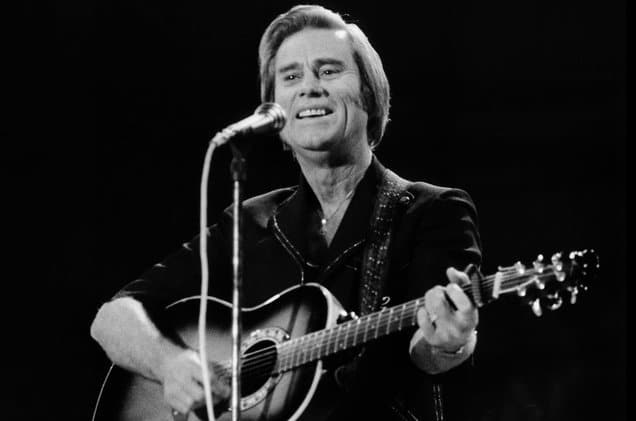
was an American musician, singer and songwriter. He achieved international fame for his long list of hit records, including his best known song “He Stopped Loving Her Today”, as well as his distinctive voice and phrasing. For the last twenty years of his life, Jones was frequently referred to as the greatest living country singer. Country music scholar Bill Malone writes, “For the two or three minutes consumed by a song, Jones immerses himself so completely in its lyrics, and in the mood it conveys, that the listener can scarcely avoid becoming similarly involved.” Waylon Jennings expressed a similar opinion in his song “It’s Alright”: “If we all could sound like we wanted to, we’d all sound like George Jones.” The shape of his nose and facial features earned Jones the nickname “The Possum.”
Born in Texas, Jones first heard country music when he was seven and was given a guitar at the age of nine. He married his first wife, Dorothy Bonvillion, in 1950, and was divorced in 1951. He served in the United States Marine Corps and was discharged in 1953. He married Shirley Ann Corley in 1954. In 1959, Jones recorded “White Lightning,” written by J. P. Richardson, which launched his career as a singer. His second marriage ended in divorce in 1968; he married fellow country music singer Tammy Wynette a year later. Years of alcoholism compromised his health and led to his missing many performances, earning him the nickname “No Show Jones.” After his divorce from Wynette in 1975, Jones married his fourth wife, Nancy Sepulvado, in 1983 and became sober for good in 1999. Jones died in 2013, aged 81, from hypoxic respiratory failure. During his career, Jones had more than 150 hits, both as a solo artist and in duets with other artists.
Willie Nelson
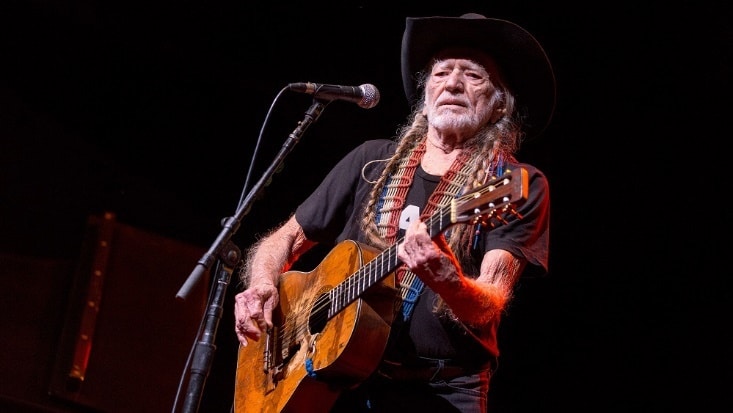
is an American musician, singer, songwriter, author, poet, actor, and activist. The critical success of the album Shotgun Willie (1973), combined with the critical and commercial success of Red Headed Stranger (1975) and Stardust (1978), made Nelson one of the most recognized artists in country music. He was one of the main figures of outlaw country, a subgenre of country music that developed in the late 1960s as a reaction to the conservative restrictions of the Nashville sound. Nelson has acted in over 30 films, co-authored several books, and has been involved in activism for the use of biofuels and the legalization of marijuana.
Born during the Great Depression and raised by his grandparents, Nelson wrote his first song at age seven and joined his first band at ten. During high school, he toured locally with the Bohemian Polka as their lead singer and guitar player. After graduating from high school in 1950, he joined the Air Force but was later discharged due to back problems. After his return, Nelson attended Baylor University for two years but dropped out because he was succeeding in music. During this time, he worked as a disc jockey in Texas radio stations and a singer in honky-tonks. Nelson moved to Vancouver, Washington, where he wrote “Family Bible” and recorded the song “Lumberjack” in 1956. He also worked as a disc jockey at various radio stations in Vancouver and nearby Portland Oregon. In 1958, he moved to Houston, Texas, after signing a contract with D Records. He sang at the Esquire Ballroom weekly and he worked as a disk jockey. During that time, he wrote songs that would become country standards, including “Funny How Time Slips Away”, “Hello Walls”, “Pretty Paper”, and “Crazy”. In 1960 he moved to Nashville, Tennessee, and later signed a publishing contract with Pamper Music which allowed him to join Ray Price’s band as a bassist. In 1962, he recorded his first album, …And Then I Wrote. Due to this success, Nelson signed in 1964 with RCA Victor and joined the Grand Ole Opry the following year. After mid-chart hits in the late 1960s and the early 1970s, Nelson retired in 1972 and moved to Austin, Texas. The ongoing music scene of Austin motivated Nelson to return from retirement, performing frequently at the Armadillo World Headquarters.
In 1973, after signing with Atlantic Records, Nelson turned to outlaw country, including albums such as Shotgun Willie and Phases and Stages. In 1975, he switched to Columbia Records, where he recorded the critically acclaimed album Red Headed Stranger. The same year, he recorded another outlaw country album, Wanted! The Outlaws, along with Waylon Jennings, Jessi Colter, and Tompall Glaser. During the mid-1980s, while creating hit albums like Honeysuckle Rose and recording hit songs like “On the Road Again”, “To All the Girls I’ve Loved Before”, and “Pancho and Lefty”, he joined the country supergroup The Highwaymen, along with fellow singers Johnny Cash, Waylon Jennings, and Kris Kristofferson.
In 1990, Nelson’s assets were seized by the Internal Revenue Service, which claimed that he owed $32 million. The difficulty of paying his outstanding debt was aggravated by weak investments he had made during the 1980s. In 1992, Nelson released The IRS Tapes: Who’ll Buy My Memories?; the profits of the double album—destined to the IRS—and the auction of Nelson’s assets cleared his debt. During the 1990s and 2000s, Nelson continued touring extensively, and released albums every year. Reviews ranged from positive to mixed. He explored genres such as reggae, blues, jazz, and folk.
Nelson made his first movie appearance in the 1979 film The Electric Horseman, followed by other appearances in movies and on television. Nelson is a major liberal activist and the co-chair of the advisory board of the National Organization for the Reform of Marijuana Laws (NORML), which is in favor of marijuana legalization. On the environmental front, Nelson owns the bio-diesel brand Willie Nelson Biodiesel, which is made from vegetable oil. Nelson is also the honorary chairman of the Advisory Board of the Texas Music Project, the official music charity of the state of Texas.
Left Banke
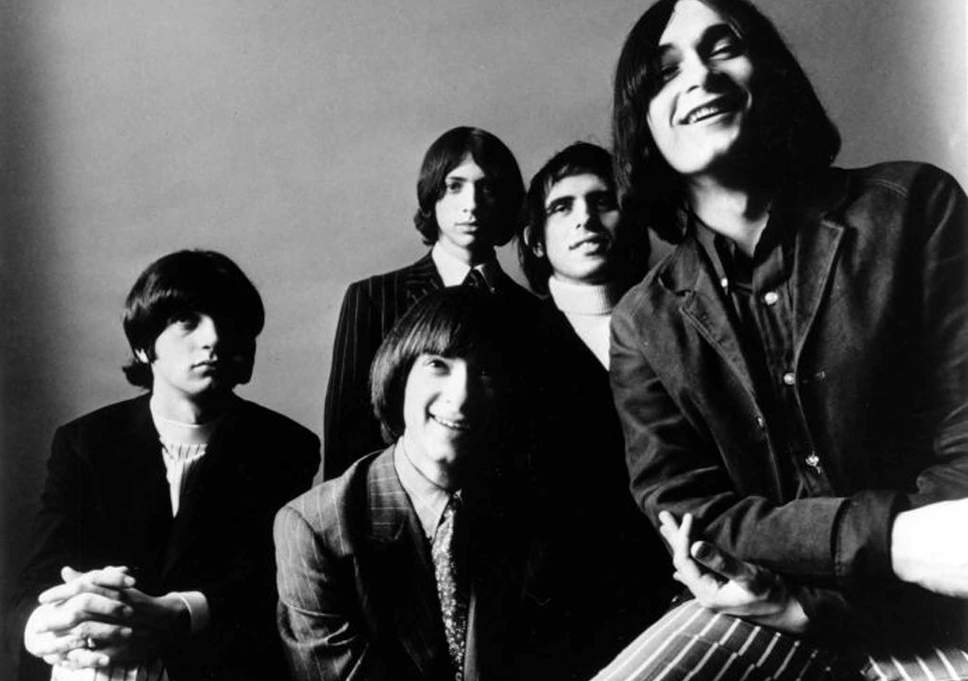
is an American baroque pop band, formed in New York City in 1965. They are best remembered for their two US hit singles, “Walk Away Renée” and “Pretty Ballerina”. The band often used what the music press referred to as “baroque” string arrangements, which led to their music being variously termed as “Bach-rock” or “baroque rock”. The band’s vocal harmonies borrowed from contemporaries such as The Beatles, The Zombies, and other British Invasion groups.
Charlie Rich
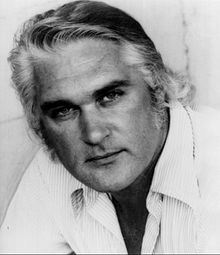
was an American country music singer, songwriter, and musician. His eclectic style of music was often difficult to classify, encompassing the rockabilly, jazz, blues, country, soul, and gospel genres.
In the later part of his life, Rich acquired the nickname the Silver Fox. He is perhaps best remembered for a pair of 1973 hits, “Behind Closed Doors” and “The Most Beautiful Girl”. “The Most Beautiful Girl” topped the U.S. country singles charts, as well as the Billboard Hot 100 pop singles charts and earned him two Grammy Awards. Rich was inducted into the Memphis Music Hall of Fame in 2015.
Grass Roots

is an American rock band that charted frequently between 1966 and 1975. The band was originally the creation of Lou Adler and songwriting duo P. F. Sloan and Steve Barri. In their career, they achieved two gold albums, one gold single and charted singles on the Billboard Hot 100 a total of 21 times. Among their charting singles, they achieved Top 10 three times, Top 20 three times and Top 40 eight times. They have sold over 20 million records worldwide.
Until his death in 2011, early member Rob Grill and a newer lineup of the Grass Roots continued to play many live performances each year. Since 2012, band members chosen by Grill are carrying on the legacy of the group with nationwide live performances.
